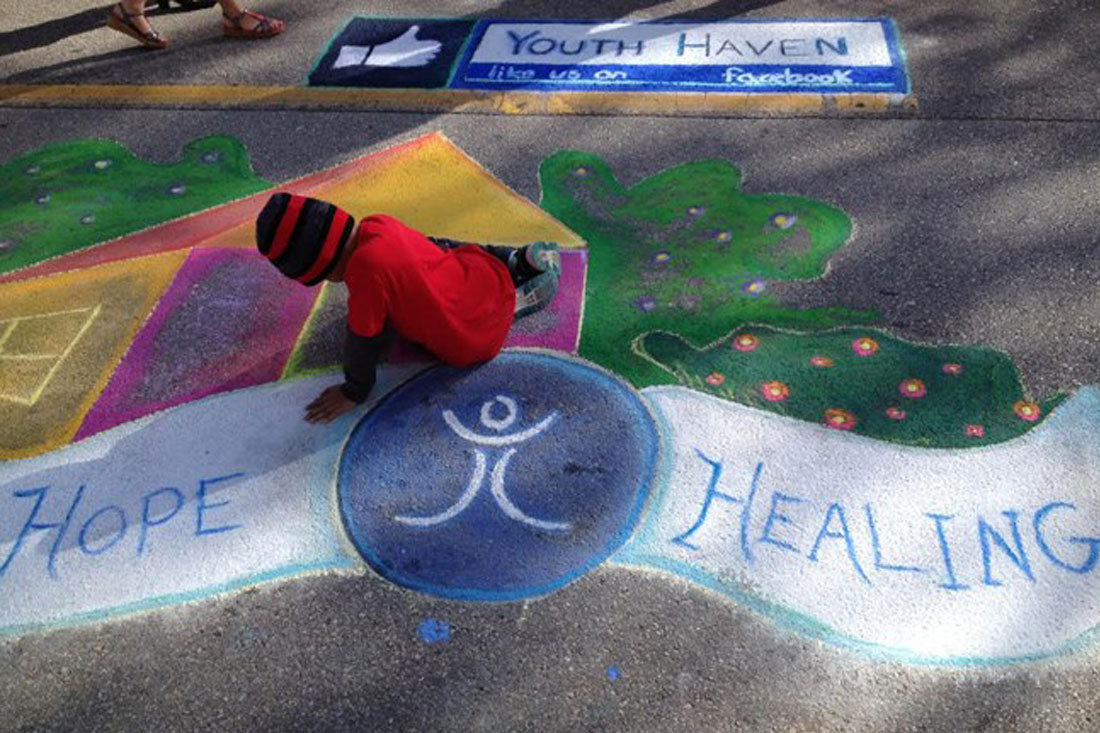
Youth Haven was founded in 1972 to fulfill an immediate need for emergency shelter for children who had been removed suddenly from a traumatic home situation. They continue to provide services and programs for Southwest Florida’s abused, abandoned, and homeless children and teens. Youth Haven’s 25-acre therapeutic campus houses over 70 youth with offering around-the-clock specialized care.
Kimberly Weisberg, LCSW, Director of Programs at Youth Haven, contacted Think:Kids for assistance in unifying their efforts toward trauma-informed care. Youth Haven was seeking a milieu management model that could be used by all team members and one that would bring them up to speed with current thinking around trauma-informed and trauma-sensitive practices. They could have provided trauma-informed training for their staff but wondered how to best help their direct care staff interact with the kids in a way that aligns with those principles. They were particularly interested in approaches that minimized the use of holds/hands-on techniques as part of their trauma-sensitive practices.
“At Youth Haven, we often take in the children that no one else wants. Our children have had numerous failed foster care placements due to their extremely challenging behaviors. We were looking for an approach that would give our staff of varying educational backgrounds the tools to help our children grow by increasing positive relationships and decreasing challenging behavior. Collaborative Problem Solving (CPS) is just that! This approach has helped our staff build meaningful relationships with our youth while helping them build skills and reduce the challenging behaviors that often got them into trouble. CPS also helped increase our staffs’ job satisfaction and decrease staff burnout! My only regret is that we didn’t start CPS sooner!”
—Kim Weisberg, LCSW
Director of Programs, Youth Haven, Inc.
Additionally, Youth Haven was interested in moving away from the use of ineffective level systems that seemed at odds with trauma-sensitive work. Their existing milieu management system was entirely built upon point and level systems, and they were seeking an effective alternative. Lastly, Youth Haven wished to have a unifying common language, process, and philosophy across all team members, from clinical to the milieu.
The Think:Kids Partnership Program was the right fit for their needs. Youth Haven began working with Think:Kids in 2019 with a readiness assessment, which helped Think:Kids develop a customized implementation plan suited to the organization’s needs. All staff members received intensive training and ongoing coaching to learn and effectively use the Collaborative Problem Solving® (CPS) approach. A majority of team members proceeded to train in more advanced concepts with a subset continuing to Certification in CPS. With further study, individuals will receive a Certification in Training which will enable them to train and coach staff internally.

To ensure the organization successfully adopted CPS, Youth Haven invested in Think:Kids providing leadership consultation focused on change management and robust data collection and evaluation. Throughout the process, Think:Kids and Youth Haven partnered to identify and track the philosophy shift, development of staff skills, use of the model, and associated outcomes. This evaluation process guided the next steps in implementation roll-out and, through regular reporting, enabled leadership to see promising outcomes and helped team members become even further invested.
“Our work with Think:Kids and the Collaborative Problem Solving approach has had a huge impact on Youth Haven by increasing our youth’s satisfaction during their stay, improved staff/client relationships, increased staff moral and employee job satisfaction, reduced our need for restrictive behavior management, and help staff feel confident that they have the ability to help our youth build skills which will help them be successful in future placements.”
— Kim Weisberg, LCSW
Director of Programs, Youth Haven, Inc.
Youth Haven will wrap up their Partnership Program at the end of 2021; however, early results already show success across several fronts. Surveys of staff indicate a dramatic decrease in the average degree of burnout over the course of CPS implementation. This is a crucial outcome given the high burnout that is typical amongst direct care staff and the resulting high turnover rates. Before CPS implementation, rates of holds and critical incidents were trending upward. Data collection shows that since CPS implementation began, these trends have reversed and are now declining.
Youth outcomes were assessed by comparing CAFAS scores before and after CPS was implemented. Total Score and subscales of Moods & Emotions and Behavior Towards Others improved to a greater degree after CPS was implemented. From intake to 3 months, more youth were rated as improved, and fewer as more acute, after CPS was implemented compared to pre-CPS implementation.
Together, these data suggest clinical improvement in these key areas since Youth Haven has been using CPS. Youth Haven’s final focus of the multi-year collaboration is now on completing Certification of key staff so they can serve as culture carriers who provide the internal capacity necessary for sustainability. Through monthly continuing education with Think:Kids, those select staff will remain energized as internal champions for the work moving forward once Youth Haven’s participation in the Partnership Program is complete.